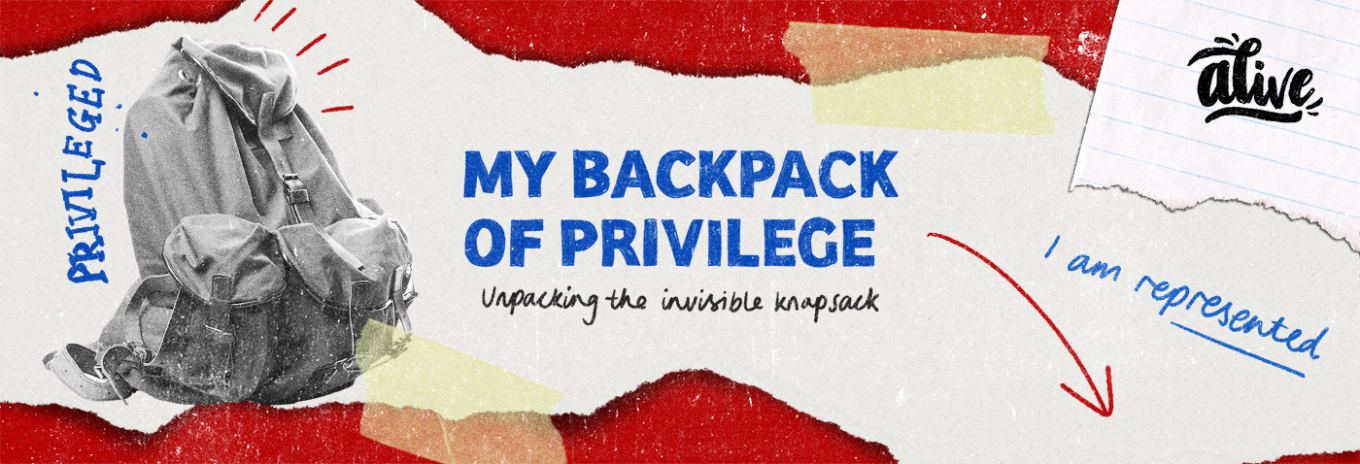Feminist, anti-racism activist and scholar Peggy McIntosh describes white privilege as an “invisible weightless knapsack” that white people carry around with them – its contents rarely recognised or questioned.
Peggy is a prolific notetaker and is passionate about reading, writing and learning. Her process is one of reaching for a pen and scraps of paper in the night to scribble down thoughts on privilege and power.
Inspired by Peggy’s article and subsequent TedTalk, I’ve been delving into my own backpack of privilege…

By Lauren Castle
Inspired by feminist, anti-racism activist and scholar Peggy McIntosh, I’ve been delving into my own backpack of privilege…
Peggy describes white privilege as an “invisible weightless knapsack” that white people carry around with them – its contents rarely recognised or questioned.
We live in a society where being white and able-bodied is assumed, naturalised and normalised, which leads to privilege for some and inequality and exclusion for others.
Let’s unpack a few day-to-day examples…
- I can use my full name on job applications, emails and bios without worrying about what judgements or decisions may come as a result.
- I can receive a job offer without questioning whether I’m just helping the organisation meet their diversity quota.
- I can search any health condition online and be shown pictures of how the symptoms or side effects would show up on my skin.
- As a consumer, I know that plasters, tights and makeup called “flesh colour”, “skin colour” or “nude” will more or less match my skin tone.
- I can overcome a challenge without being called a credit to, or a representation of, my race.
- I can receive an invite to an in-person conference without having to consider if the building is accessible to me.
- I can turn on the TV and consistently see myself represented on screen.
- I can view every video and photo on my social media feed, including those without subtitles or alt text.
While this doesn’t mean I never experience marginalisation or discomfort (as a woman, I certainly do), by recognising my privilege I can explore how to use it in a positive way, that resources and benefits others.
Understanding our privilege and proximity to power in different contexts, spaces and places can make us more self-aware and empathetic communicators, more reflective and thoughtful colleagues and more socially conscious leaders.
Whether it’s your race, gender, class or geography – what’s in your backpack of privilege and how will you use it?
















